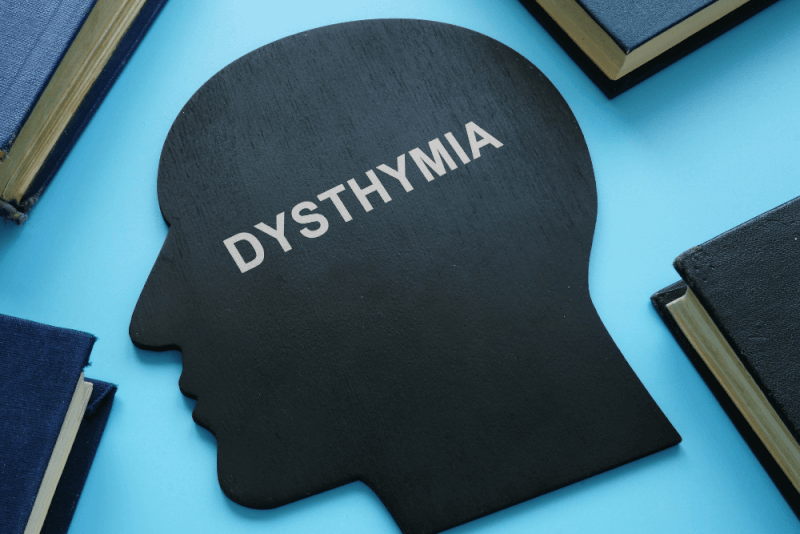Bulimia nervosa, a psychiatric disorder, is often confused with anorexia nervosa. Although both diseases cause eating disorders, they are completely different from each other.
What is Bulimia Nervosa?
People with bulimia nervosa consume very large amounts of calories in a very short period of time and have no self-control whatsoever. After consuming high-calorie foods, they use unhealthy methods to balance these calories, such as heavy exercise, diuretic drugs, vomiting and defecation aids..
Bulimia nervosa patients are considered to have the disease if they experience a cycle of eating excessive calories and then resorting to unhealthy methods to balance their calories for more than 3 months. It is sufficient for patients to have at least one such attack within 3 months.
Patients who consume high-calorie and high-carbohydrate foods that they did not plan in advance during eating attacks experience feelings of self-criticism and regret afterwards. As a result of this regret, they try to make up for their mistakes in an unhealthy way. When the attack periods of the patients end, a very balanced and healthy diet is determined. The most important difference between anorexia nervosa and bulimia nervosa is the average weight of bulimia patients.
Causes of Eating Attacks
Among the factors that trigger eating attacks in patients with bulimia nervosa are the following.
- Experiencing stress,
- Dietary restrictions,,
- Dissatisfaction with body shape and weight,
- Regret after an attack,
- Distress,
- Anger,
Causes of Bulimia Nervosa
Although there have been many studies on bulimia nervosa, the exact cause has not been clearly identified. On the other hand, some factors have been identified as contributing to the causes of the disease.
- Excessive childhood anxiety and obesity,
- Competitive sports,
- Insecurity
- Cultural factors,
- Hormones,
- Mental health problems,
- Stressful life
- Traumatic events,
- Being a victim of abuse,
- Being bullied,
- Genetics,
Symptoms of Bulimia Nervosa
The symptoms of bulimia nervosa are extremely difficult to recognize. Because these patients are usually at their ideal weight or slightly overweight. Patients also make a concerted effort to conceal their symptoms.
The most characteristic symptom of the disease is that after bouts of unstoppable eating, patients experience remorse and turn to unhealthy methods to balance their calories. Patients experience a very serious emotional regret after an eating episode. On the other hand, these patients also have extremely low self-esteem. In addition to these characteristic symptoms, patients with bulimia nervosa also experience the following symptoms.
- Thinking that you are overweight and constantly complaining about it
- Broken blood vessel in the eye,
- Irregular menstruation, chronic sore throat caused by vomiting,
- Dental caries caused by acid during vomiting,
- Swelling of the cheeks due to damage to the parotid glands,
- Don’t isolate yourself from people and social life,
- Depression,
- Anxiety,
- Don’t starve for too long,
- Don’t deny hunger,
- Strenuous and heavy exercise routines,
- Disappearance after eating,
- Don’t spend a serious budget on food,
- Obsession with food and food,
Physical Consequences of Bulimia Nervosa
Diagnosis of the disease is extremely difficult both because patients hide their symptoms and because they are at their ideal weight. Bulimia nervosa is also a psychological illness. Because of these features of the disease, patients avoid treatment for a long time. If patients are left untreated for a long period of time, they can develop physical health problems. These include the following.
- Prolapse of the intestine from the anus,
- Continuous use of defecation medications used by patients to compensate for excess calorie intake disrupts bowel movements.
- Rupture of the esophagus due to persistent vomiting,
- Stomach perforations
- Electrolysis imbalance caused by vomiting,
- Menstrual irregularities or absence of menstruation in women,
Bulimia Nervosa Treatment
Since bulimia nervosa is a psychological disorder, the primary condition for successful treatment is that patients accept their illness and are willing to undergo treatment. Afterwards, patients receive a combination of treatment methods such as psychotherapy, medication and family therapy.
Psychotherapy
The main purpose of using psychotherapy in the treatment of bulimia nervosa, a psychological disorder, is to help patients establish a rational relationship with food. Because of this goal of psychotherapy, psychotherapy focuses on behavior therapy and cognitive therapy. The addition of cognitive therapy to treatment aims to change patients’ behavioral and thought patterns. Behavioral therapy aims to change patients’ behavior patterns. All of these psychological therapies are applied to help patients cope with difficult times and emotions, to maintain their body weight and to realize a realistic view of their body.
Nutrition Counseling
In nutritional counseling, patients work together with a dietitian. Another auxiliary treatment method used to balance the eating and balancing cycles that patients cannot break is the diet lists prepared by dieticians. Dietitians prepare patient-specific diet lists in accordance with the amount of calories that patients should take daily.
Family Therapy
The support of the patient’s immediate family is crucial for the treatment of the disease to be a complete success. This circle includes primarily family and close friends. Long-term success is achieved thanks to the effective involvement of patients’ close circles in the treatment. Family therapies have proven to be effective in treating the disease. Families are particularly influential because they can follow the patients closely.









